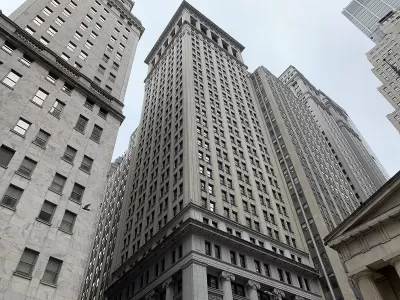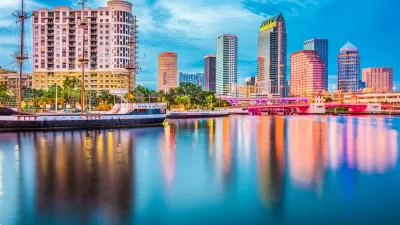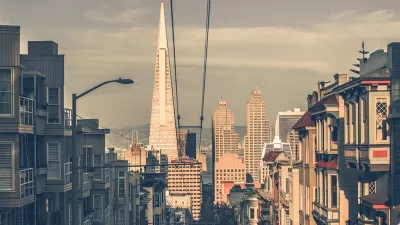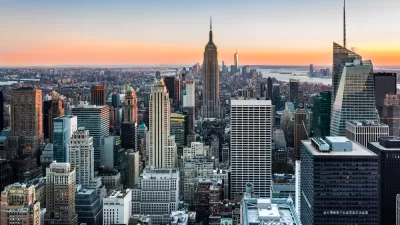Landlords are offering generous incentives in an effort to prop up the struggling U.S. office market.

An article in The Real Deal assesses the state of the U.S. office real estate market, which is showing some signs of recovery after the pandemic drastically reduced the need for office space. However, the article notes that this is due in part to significant incentives offered by landlords desperate to close deals.
"CBRE reported cash payments made to tenants in the Manhattan office market have more than doubled from 2016 to 2021, from $76 per square foot to $154 per square foot, for the market’s most expensive leases." With the incentives factored in, landlords are collecting 7.7 percent less rent than five years ago. But despite the hit, the article indicates that "landlords benefit by having high rents on paper to inflate the value of the property and perhaps lure other tenants."
As masses of office workers shifted to remote work over the last two years, occupancy in downtown buildings dropped sharply, leading to financial distress in the industry and creating ripple effects throughout the network of small businesses and vendors that traditionally depend on commuters. In some cases, cities are developing plans to revitalize areas typically dependent on the 9-to-5 crowd and reimagine the use of buildings and public space for more flexible and diverse uses.
FULL STORY: Unprecedented landlord incentives powering U.S. office market recovery

Planetizen Federal Action Tracker
A weekly monitor of how Trump’s orders and actions are impacting planners and planning in America.

Congressman Proposes Bill to Rename DC Metro “Trump Train”
The Make Autorail Great Again Act would withhold federal funding to the system until the Washington Metropolitan Area Transit Authority (WMATA), rebrands as the Washington Metropolitan Authority for Greater Access (WMAGA).

The Simple Legislative Tool Transforming Vacant Downtowns
In California, Michigan and Georgia, an easy win is bringing dollars — and delight — back to city centers.

Albuquerque’s Microtransit: A Planner’s Answer to Food Access Gaps
New microtransit vans in Albuquerque aim to close food access gaps by linking low-income areas to grocery stores, cutting travel times by 30 percent and offering planners a scalable model for equity-focused transit.

This City Will Pay You to Meet Your Neighbors
A North Kansas City grant program offers up to $400 for residents to throw neighborhood block parties.

Commentary: Our Silence Will Not Protect Us
Keeping our heads down and our language inoffensive is not the right response to the times we’re in. Solidarity and courage is.
Urban Design for Planners 1: Software Tools
This six-course series explores essential urban design concepts using open source software and equips planners with the tools they need to participate fully in the urban design process.
Planning for Universal Design
Learn the tools for implementing Universal Design in planning regulations.
Smith Gee Studio
City of Charlotte
City of Camden Redevelopment Agency
City of Astoria
Transportation Research & Education Center (TREC) at Portland State University
US High Speed Rail Association
City of Camden Redevelopment Agency
Municipality of Princeton (NJ)





























